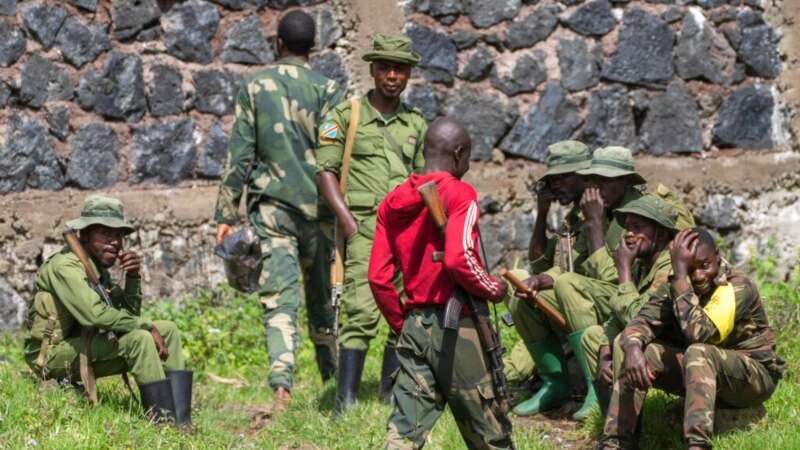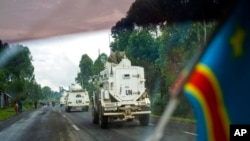This website uses cookies so that we can provide you with the best user experience possible. Cookie information is stored in your browser and performs functions such as recognising you when you return to our website and helping our team to understand which sections of the website you find most interesting and useful.

M23 rebels were still fighting and advancing on one front of their offensive in eastern Democratic Republic of the Congo on Friday as a cease-fire came into force, civilian and military sources said.
Clashes continued after the 1700 GMT deadline to cease fire near Bwiza, about 40 kilometers north of the provincial capital, Goma, local people told AFP by telephone.
"M23 is at Bwiza," an administrative source said, adding that the rebels had taken over several villages in the area.
AFP was unable to independently confirm the account.
Bwiza was the stronghold of former Congolese Tutsi rebel leader Laurent Nkunda, who operated there in the 2000s.
Fighting also took place during the day between the M23 and a Hutu militia in Bambo, 70 kilometers from Goma.
"Heavy weapons fire can be heard. People are in a panic," a civil society representative told AFP.
A security source confirmed fighting between the M23 and soldiers from the Democratic Forces for the Liberation Rwanda (FDLR), a Hutu faction present in the DRC since the 1994 genocide of Tutsis in Rwanda.
Calm seemed to have returned to Bambo as evening fell.
The situation appeared more settled 20 kilometers north of Goma, where a front line has formed during the last two weeks close to the town of Kibumba on national Highway 2.
DRC's President Felix Tshisekedi and Rwandan Foreign Minister Vincent Biruta met in Angola on Wednesday, agreeing to a deal on the cessation of hostilities in eastern DRC starting Friday evening local time.
M23 rebels were to withdraw from "occupied zones," and if they did not, the East African regional force would intervene.
But the rebels, a largely Congolese Tutsi militia, said Thursday that the cease-fire "doesn't really concern us" and called for direct talks with DRC's government.
"Normally when there is a cease-fire it is between the two warring sides," a spokesman for the rebels added.
On Friday, Bertrand Bisimwa, president of the M23, put out a statement in English saying that his group "accepts the cease-fire as recommended" by the Luanda summit. But he called on Kinshasa "to respect said cease-fire. Otherwise the M23 reserves itself the full right to defend itself."
The March 23 group had been dormant for years but took up arms again late last year.
The DRC accuses Rwanda of supporting the rebels, a charge Kigali denies.
The rebels have recently seized swaths of mountainous Rutshuru territory north of Goma, a city of 1 million that they briefly captured 10 years ago.
Kinshasa has refused to engage with the M23, which it calls a terrorist movement, as long as it occupies territory in the DRC.
The M23 is one of scores of armed groups that have turned eastern DRC into one of Africa's most violent regions.
Many such armed groups are legacies of two wars before the turn of the century that sucked in countries from the region and left millions dead.



 Africana55 Radio
Africana55 Radio 

